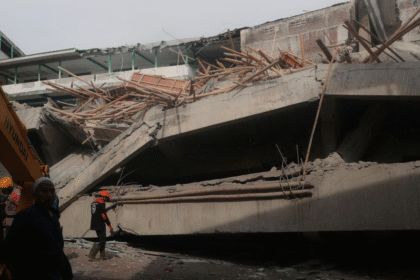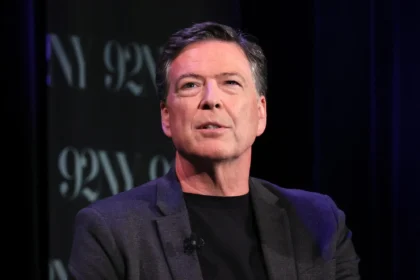12 Days of Fire: Iran Drops 3 Major Statements on India’s Role in Israel-Iran Conflict
In what may be called a tacit expression of its displeasure, Iran’s Foreign Minister Abbas Araghchi kept a cryptic silence on India’s role, the Iranian Embassy in New Delhi thanked India
India’s balancing act during the 12-Day Israel-Iran War has paid off. Though New Delhi did not openly support its old ally in its time of crisis at a time when India was coming closer to Iran’s main enemy Israel, Tehran thanked it for its support. In what may be called a tacit expression of its displeasure, Iran’s Foreign Minister Abbas Araghchi kept a cryptic silence on India’s role, the Iranian Embassy in New Delhi thanked India. Taking to X, it wrote in a post that the political leadership, common citizens, and activists among others stood firmly and vocally with Tehran.
It said in the social media post, “On the occasion of the Iranian nation’s victory in the face of military aggression by the Zionist regime and the United States, the Embassy of the Islamic Republic of Iran in New Delhi extends its heartfelt gratitude to all noble and freedom-loving people of India — including the esteemed citizens, political parties, honorable members of Parliament, non-governmental organizations, religious and spiritual leaders, university professors, members of the media, social activists, and all individuals and institutions who, in recent days and in various forms, stood firmly and vocally with the great nation of Iran.”

Vowing to destroy the nuclear facilities of the Islamic Republic, Tel Aviv fired a barrage of missiles and sent scores of fighter jets to Iran on June 13 and bombed many places, including civilian targets and infrastructure. Many people in India supported Iran in its war against the Jewish nation. However, the government expressed its concern and called for de-escalation. Common people, including intellectuals, took to social media platforms and voiced their support for Iran, criticising Israel and the US for their stance.
In the statement that ended with “Jai Iran — Jai Hind”, the Iranian Embassy said, “Once again, we express our sincere appreciation for the genuine and invaluable support shown by the people and institutions of the great nation of India. Undoubtedly, this solidarity — rooted in the longstanding cultural, civilizational, and human ties between our two nations — will further strengthen the cause of peace, stability, and global justice.
During the 12-day explosion of hostilities between Israel and Iran, Tehran made a major declaration regarding India’s “role” — a claim that’s reverberated across international news and diplomatic channels. Here’s an in-depth breakdown

Between June 13–25, 2025, Iran and Israel engaged in a sharp military exchange, including airstrikes, missile launches, and drone assaults.
The flare-up ended with a U.S.-brokered ceasefire on June 25, de-escalating tensions
On June 25, Iran’s embassy issued a powerful communique accusing India of being “complicit” and having “back-channel cooperation” with Israel during the war.
Key Indonesian statements include:
- India provided diplomatic cover to Israel’s military actions.
- Strategic silence by New Delhi was labeled as “deep alignment with Israeli tactics.”
- Tehran warned of long-term geopolitical consequences, citing India’s attempt to maintain neutrality as misleading.
- Iran demanded formal clarification and accountability from India’s Embassy in Tehran.
The statement coincided with the ceasefire, as Iran moved to shape global narratives and rally regional support.
It also served as a domestic diversion: Iran recently executed six individuals accused of spying for Israel — which critics say is aimed at deflecting attention from the military stalemate
Plus, with Indian evacuees and stranded students still prominent in media coverage, Tehran’s statement could strengthen its bargaining stance .
PM Modi spoke with Iran’s President Pezeshkian on June 22, urging de-escalation via dialogue
By June 21, Tehran had allowed India to use Iranian airspace to evacuate ~1,000 Indian students under Operation Sindhu
Even as evacuations halted after the ceasefire, India emphasized its neutral stance, calling for peace without naming or blaming any party
Launched on June 18, it evacuated a total of 3,170 Indian nationals (students, pilgrims, workers) from Iran and Israel
India acted within three days to shift 290 students through Jordan and Egypt, keeping citizens safe amid missile sirens
As fears grew — including 14-hour bombardments reported by returnees from Mashhad and Tehran — Operation Sindhu became a key humanitarian success
Geopolitical muscle: With deep ties to both Israel and Iran, India is seen as a crucial mediator in Mideast diplomacy .
Economic stakes: India–Israel arms, technology, and trade collaborations amount to $4.6 bn+ annually, while the Chabahar Port deal links India to Iranian strategic infrastructure
Human dimension: Over 28,000 Indians live in Israel & Iran, many working as students, caregivers, or labourers; India has a duty to protect them .
Strategic position: Amid rising proxy conflicts and global supply chain concerns, India’s voice adds credibility to de-escalation efforts
Tehran’s accusations prompted New Delhi to reiterate its policy of neutrality and focus on humanitarian action.
Israel, while not commenting publicly on India, appreciated India’s evacuation efforts and public calls for calm.
U.S. foreign policy facilitated the ceasefire and praised India’s constructive diplomacy in evacuation and neutrality.
Regional players like UAE and Gulf states welcomed India’s role as a stabilizing force.
| Factor | Impact on India–Iran Relations |
|---|---|
| Diplomacy | Potential strain due to public accusations, but civilian cooperation remains strong. |
| Security | India’s neutrality may cool Iran’s suspicions, yet Tehran’s patience could fray. |
| Economics | Chabahar port partnership might be delayed, but still active. |
| Evacuation precedent | Operation Sindhu strengthened MEA’s crisis response capabilities. |
India to push for global peace initiatives, engaging multilateral platforms like I2U2 and BRICS to encourage dialogue
Tehran may await formal clarifications or statements from India to show independence from Israeli narratives.
India will likely continue reinforcing its “constructive-actor” image by offering evacuation support, diplomatic outreach, and humanitarian assistance.
Read Also : Today in Mumbai: 7 Signs of Light to Moderate Rain You Can’t Ignore








